#asynchronous
Explore tagged Tumblr posts
Text
The (open) web is good, actually
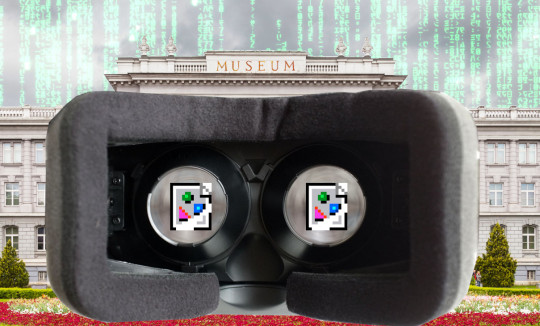
I'll be at the Studio City branch of the LA Public Library tonight (Monday, November 13) at 1830hPT to launch my new novel, The Lost Cause. There'll be a reading, a talk, a surprise guest (!!) and a signing, with books on sale. Tell your friends! Come on down!

The great irony of the platformization of the internet is that platforms are intermediaries, and the original promise of the internet that got so many of us excited about it was disintermediation – getting rid of the middlemen that act as gatekeepers between community members, creators and audiences, buyers and sellers, etc.
The platformized internet is ripe for rent seeking: where the platform captures an ever-larger share of the value generated by its users, making the service worst for both, while lock-in stops people from looking elsewhere. Every sector of the modern economy is less competitive, thanks to monopolistic tactics like mergers and acquisitions and predatory pricing. But with tech, the options for making things worse are infinitely divisible, thanks to the flexibility of digital systems, which means that product managers can keep subdividing the Jenga blocks they pulling out of the services we rely on. Combine platforms with monopolies with digital flexibility and you get enshittification:
https://pluralistic.net/2023/01/21/potemkin-ai/#hey-guys
An enshittified, platformized internet is bad for lots of reasons – it concentrates decisions about who may speak and what may be said into just a few hands; it creates a rich-get-richer dynamic that creates a new oligarchy, with all the corruption and instability that comes with elite capture; it makes life materially worse for workers, users, and communities.
But there are many other ways in which the enshitternet is worse than the old good internet. Today, I want to talk about how the enshitternet affects openness and all that entails. An open internet is one whose workings are transparent (think of "open source"), but it's also an internet founded on access – the ability to know what has gone before, to recall what has been said, and to revisit the context in which it was said.
At last week's Museum Computer Network conference, Aaron Straup Cope gave a talk on museums and technology called "Wishful Thinking – A critical discussion of 'extended reality' technologies in the cultural heritage sector" that beautifully addressed these questions of recall and revisiting:
https://www.aaronland.info/weblog/2023/11/11/therapy/#wishful
Cope is a museums technologist who's worked on lots of critical digital projects over the years, and in this talk, he addresses himself to the difference between the excitement of the galleries, libraries, archives and museums (GLAM) sector over the possibilities of the web, and why he doesn't feel the same excitement over the metaverse, and its various guises – XR, VR, MR and AR.
The biggest reason to be excited about the web was – and is – the openness of disintermediation. The internet was inspired by the end-to-end principle, the idea that the network's first duty was to transmit data from willing senders to willing receivers, as efficiently and reliably as possible. That principle made it possible for whole swathes of people to connect with one another. As Cope writes, openness "was not, and has never been, a guarantee of a receptive audience or even any audience at all." But because it was "easy and cheap enough to put something on the web," you could "leave it there long enough for others to find it."
That dynamic nurtured an environment where people could have "time to warm up to ideas." This is in sharp contrast to the social media world, where "[anything] not immediately successful or viral … was a waste of time and effort… not worth doing." The social media bias towards a river of content that can't be easily reversed is one in which the only ideas that get to spread are those the algorithm boosts.
This is an important way to understand the role of algorithms in the context of the spread of ideas – that without recall or revisiting, we just don't see stuff, including stuff that might challenge our thinking and change our minds. This is a much more materialistic and grounded way to talk about algorithms and ideas than the idea that Big Data and AI make algorithms so persuasive that they can control our minds:
https://pluralistic.net/2023/11/06/attention-rents/#consumer-welfare-queens
As bad as this is in the social media context, it's even worse in the context of apps, which can't be linked into, bookmarked, or archived. All of this made apps an ominous sign right from the beginning:
https://memex.craphound.com/2010/04/01/why-i-wont-buy-an-ipad-and-think-you-shouldnt-either/
Apps interact with law in precisely the way that web-pages don't. "An app is just a web-page wrapped in enough IP to make it a crime to defend yourself against corporate predation":
https://pluralistic.net/2023/08/27/an-audacious-plan-to-halt-the-internets-enshittification-and-throw-it-into-reverse/
Apps are "closed" in every sense. You can't see what's on an app without installing the app and "agreeing" to its terms of service. You can't reverse-engineer an app (to add a privacy blocker, or to change how it presents information) without risking criminal and civil liability. You can't bookmark anything the app won't let you bookmark, and you can't preserve anything the app won't let you preserve.
Despite being built on the same underlying open frameworks – HTTP, HTML, etc – as the web, apps have the opposite technological viewpoint to the web. Apps' technopolitics are at war with the web's technopolitics. The web is built around recall – the ability to see things, go back to things, save things. The web has the technopolitics of a museum:
https://www.aaronland.info/weblog/2014/09/11/brand/#dconstruct
By comparison, apps have the politics of a product, and most often, that product is a rent-seeking, lock-in-hunting product that wants to take you hostage by holding something you love hostage – your data, perhaps, or your friends:
https://www.eff.org/deeplinks/2021/08/facebooks-secret-war-switching-costs
When Anil Dash described "The Web We Lost" in 2012, he was describing a web with the technopolitics of a museum:
where tagging was combined with permissive licenses to make it easy for people to find and reuse each others' stuff;
where it was easy to find out who linked to you in realtime even though most of us were posting to our own sites, which they controlled;
where a link from one site to another meant one person found another person's contribution worthy;
where privacy-invasive bids to capture the web were greeted with outright hostility;
where every service that helped you post things that mattered to you was expected to make it easy for you take that data back if you changed services;
where inlining or referencing material from someone else's site meant following a technical standard, not inking a business-development deal;
https://www.anildash.com/2012/12/13/the_web_we_lost/
Ten years later, Dash's "broken tech/content culture cycle" described the web we live on now:
https://www.anildash.com/2022/02/09/the-stupid-tech-content-culture-cycle/
found your platform by promising to facilitate your users' growth;
order your technologists and designers to prioritize growth above all other factors and fire anyone who doesn't deliver;
grow without regard to the norms of your platform's users;
plaster over the growth-driven influx of abusive and vile material by assigning it to your "most marginalized, least resourced team";
deliver a half-assed moderation scheme that drives good users off the service and leaves no one behind but griefers, edgelords and trolls;
steadfastly refuse to contemplate why the marginalized users who made your platform attractive before being chased away have all left;
flail about in a panic over illegal content, do deals with large media brands, seize control over your most popular users' output;
"surface great content" by algorithmically promoting things that look like whatever's successful, guaranteeing that nothing new will take hold;
overpay your top performers for exclusivity deals, utterly neglect any pipeline for nurturing new performers;
abuse your creators the same ways that big media companies have for decades, but insist that it's different because you're a tech company;
ignore workers who warn that your product is a danger to society, dismiss them as "millennials" (defined as "anyone born after 1970 or who has a student loan")
when your platform is (inevitably) implicated in a murder, have a "town hall" overseen by a crisis communications firm;
pay the creator who inspired the murder to go exclusive on your platform;
dismiss the murder and fascist rhetoric as "growing pains";
when truly ghastly stuff happens on your platform, give your Trust and Safety team a 5% budget increase;
chase growth based on "emotionally engaging content" without specifying whether the emotions should be positive;
respond to ex-employees' call-outs with transient feelings of guilt followed by dismissals of "cancel culture":
fund your platforms' most toxic users and call it "free speech";
whenever anyone disagrees with any of your decisions, dismiss them as being "anti-free speech";
start increasing how much your platform takes out of your creators' paychecks;
force out internal dissenters, dismiss external critics as being in conspiracy with your corporate rivals;
once regulation becomes inevitable, form a cartel with the other large firms in your sector and insist that the problem is a "bad algorithm";
"claim full victim status," and quit your job, complaining about the toll that running a big platform took on your mental wellbeing.
https://pluralistic.net/2022/02/18/broken-records/#dashes
The web wasn't inevitable – indeed, it was wildly improbable. Tim Berners Lee's decision to make a new platform that was patent-free, open and transparent was a complete opposite approach to the strategy of the media companies of the day. They were building walled gardens and silos – the dialup equivalent to apps – organized as "branded communities." The way I experienced it, the web succeeded because it was so antithetical to the dominant vision for the future of the internet that the big companies couldn't even be bothered to try to kill it until it was too late.
Companies have been trying to correct that mistake ever since. After three or four attempts to replace the web with various garbage systems all called "MSN," Microsoft moved on to trying to lock the internet inside a proprietary browser. Years later, Facebook had far more success in an attempt to kill HTML with React. And of course, apps have gobbled up so much of the old, good internet.
Which brings us to Cope's views on museums and the metaverse. There's nothing intrinsically proprietary about virtual worlds and all their permutations. VRML is a quarter of a century old – just five years younger than Snow Crash:
https://en.wikipedia.org/wiki/VRML
But the current enthusiasm for virtual worlds isn't merely a function of the interesting, cool and fun experiences you can have in them. Rather, it's a bid to kill off whatever is left of the old, good web and put everything inside a walled garden. Facebook's metaverse "is more of the same but with a technical footprint so expensive and so demanding that it all but ensures it will only be within the means of a very few companies to operate."
Facebook's VR headsets have forward-facing cameras, turning every users into a walking surveillance camera. Facebook put those cameras there for "pass through" – so they can paint the screens inside the headset with the scene around you – but "who here believes that Facebook doesn't have other motives for enabling an always-on camera capturing the world around you?"
Apple's VisionPro VR headset is "a near-perfect surveillance device," and "the only thing to save this device is the trust that Apple has marketed its brand on over the last few years." Cope notes that "a brand promise is about as fleeting a guarantee as you can get." I'll go further: Apple is already a surveillance company:
https://pluralistic.net/2022/11/14/luxury-surveillance/#liar-liar
The technopolitics of the metaverse are the opposite of the technopolitics of the museum – even moreso than apps. Museums that shift their scarce technology budgets to virtual worlds stand a good chance of making something no one wants to use, and that's the best case scenario. The worst case is that museums make a successful project inside a walled garden, one where recall is subject to corporate whim, and help lure their patrons away from the recall-friendly internet to the captured, intermediated metaverse.
It's true that the early web benefited from a lot of hype, just as the metaverse is enjoying today. But the similarity ends there: the metaverse is designed for enclosure, the web for openness. Recall is a historical force for "the right to assembly… access to basic literacy… a public library." The web was "an unexpected gift with the ability to change the order of things; a gift that merits being protected, preserved and promoted both internally and externally." Museums were right to jump on the web bandwagon, because of its technopolitics. The metaverse, with its very different technopolitics, is hostile to the very idea of museums.
In joining forces with metaverse companies, museums strike a Faustian bargain, "because we believe that these places are where our audiences have gone."
The GLAM sector is devoted to access, to recall, and to revisiting. Unlike the self-style free speech warriors whom Dash calls out for self-serving neglect of their communities, the GLAM sector is about preservation and access, the true heart of free expression. When a handful of giant companies organize all our discourse, the ability to be heard is contingent on pleasing the ever-shifting tastes of the algorithm. This is the problem with the idea that "freedom of speech isn't freedom of reach" – if a platform won't let people who want to hear from you see what you have to say, they are indeed compromising freedom of speech:
https://pluralistic.net/2022/12/10/e2e/#the-censors-pen
Likewise, "censorship" is not limited to "things that governments do." As Ada Palmer so wonderfully describes it in her brilliant "Why We Censor: from the Inquisition to the Internet" speech, censorship is like arsenic, with trace elements of it all around us:
https://www.youtube.com/watch?v=uMMJb3AxA0s
A community's decision to ban certain offensive conduct or words on pain of expulsion or sanction is censorship – but not to the same degree that, say, a government ban on expressing certain points of view is. However, there are many kinds of private censorship that rise to the same level as state censorship in their impact on public discourse (think of Moms For Liberty and their book-bannings).
It's not a coincidence that Palmer – a historian – would have views on censorship and free speech that intersect with Cope, a museum worker. One of the most brilliant moments in Palmer's speech is where she describes how censorship under the Inquistion was not state censorship – the Inquisition was a multinational, nongovernmental body that was often in conflict with state power.
Not all intermediaries are bad for speech or access. The "disintermediation" that excited early web boosters was about escaping from otherwise inescapable middlemen – the people who figured out how to control and charge for the things we did with one another.
When I was a kid, I loved the writing of Crad Kilodney, a short story writer who sold his own self-published books on Toronto street-corners while wearing a sign that said "VERY FAMOUS CANADIAN AUTHOR, BUY MY BOOKS" (he also had a sign that read, simply, "MARGARET ATWOOD"). Kilodney was a force of nature, who wrote, edited, typeset, printed, bound, and sold his own books:
https://www.theglobeandmail.com/arts/books/article-late-street-poet-and-publishing-scourge-crad-kilodney-left-behind-a/
But there are plenty of writers out there that I want to hear from who lack the skill or the will to do all of that. Editors, publishers, distributors, booksellers – all the intermediaries who sit between a writer and their readers – are not bad. They're good, actually. The problem isn't intermediation – it's capture.
For generations, hucksters have conned would-be writers by telling them that publishing won't buy their books because "the gatekeepers" lack the discernment to publish "quality" work. Friends of mine in publishing laughed at the idea that they would deliberately sideline a book they could figure out how to sell – that's just not how it worked.
But today, monopolized film studios are literally annihilating beloved, high-priced, commercially viable works because they are worth slightly more as tax writeoffs than they are as movies:
https://deadline.com/2023/11/coyote-vs-acme-shelved-warner-bros-discovery-writeoff-david-zaslav-1235598676/
There's four giant studios and five giant publishers. Maybe "five" is the magic number and publishing isn't concentrated enough to drop whole novels down the memory hole for a tax deduction, but even so, publishing is trying like hell to shrink to four:
https://pluralistic.net/2022/11/07/random-penguins/#if-you-wanted-to-get-there-i-wouldnt-start-from-here
Even as the entertainment sector is working to both literally and figuratively destroy our libraries, the cultural heritage sector is grappling with preserving these libraries, with shrinking budgets and increased legal threats:
https://blog.archive.org/2023/03/25/the-fight-continues/
I keep meeting artists of all description who have been conditioned to be suspicious of anything with the word "open" in its name. One colleague has repeatedly told me that fighting for the "open internet" is a self-defeating rhetorical move that will scare off artists who hear "open" and think "Big Tech ripoff."
But "openness" is a necessary precondition for preservation and access, which are the necessary preconditions for recall and revisiting. Here on the last, melting fragment of the open internet, as tech- and entertainment-barons are seizing control over our attention and charging rent on our ability to talk and think together, openness is our best hope of a new, good internet. T
he cultural heritage sector wants to save our creative works. The entertainment and tech industry want to delete them and take a tax writeoff.
As a working artist, I know which side I'm on.

If you'd like an essay-formatted version of this post to read or share, here's a link to it on pluralistic.net, my surveillance-free, ad-free, tracker-free blog:
https://pluralistic.net/2023/11/13/this-is-for-everyone/#revisiting

Image: Diego Delso (modified) https://commons.wikimedia.org/wiki/File:Museo_Mimara,_Zagreb,_Croacia,_2014-04-20,_DD_01.JPG
CC BY-SA 4.0 https://creativecommons.org/licenses/by-sa/4.0/
#pluralistic#ar#xr#vr#augmented reality#extended reality#virtual reality#museums#cultural preservation#aaron cope#Museum Computer Network#cultural heritage#glam#access#open access#revisiting#mr#mixed reality#asynchronous#this is for everyone#freedom of reach#gatekeepers#metaverse#technofeudalism#privacy#brick on the face#rent-seeking
189 notes
·
View notes
Text




"I'm much wilder than you."
|CONTROL ▴ 2019|
#control#control game#jesse faden#essej#synchronicity#the best side mission in the game imho#asynchronous#remedy#courtney hope#control 2019#self reflection
58 notes
·
View notes
Text
anyone have any asynchronous learning tips
I have an asynchronous learning day tomorrow, I had one today, but I didn’t focus on my work as well
3 notes
·
View notes
Text
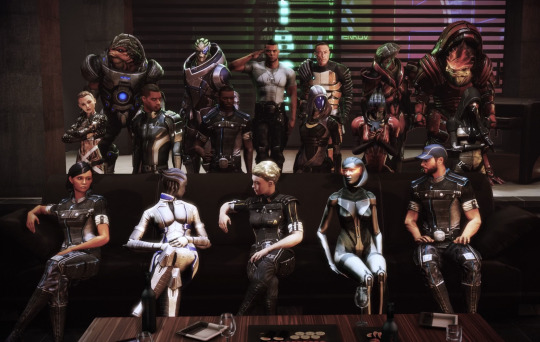
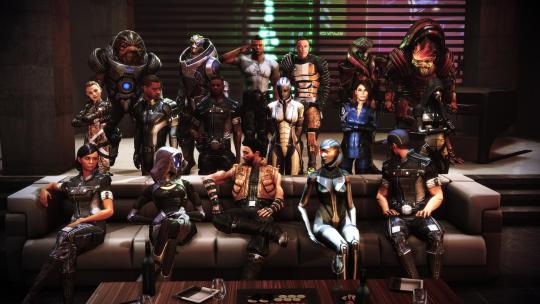
Thanks for sticking with us, yall. It's been a good ride. https://share.transistor.fm/s/505ae349
27 notes
·
View notes
Text




09.04.2020 | Jesse Faden
Mods by reg2k, ilikedetectives and I. Photomode range unlocker by ilikedetectives. Captured using ReShade.
#jesse faden#asynchronous#control remedy#virtual photography#pc games#pc gaming#pc mods#remedy entertainment#505 games
7 notes
·
View notes
Text
I don’t feel like it.
The why of *that* varies
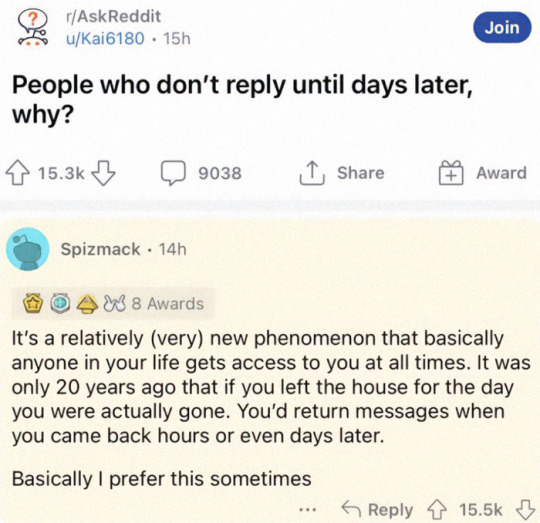
1K notes
·
View notes
Text
youtube
ABSOLUTISM-LOTHOPHAGOUS
#ABSOLUTISM#TECHNICAL DEATH METAL;#TECH-DEATH#DEATH METAL;#HEAVY METAL;#METAL;#2023 ALBUM#ASYNCHRONOUS#Youtube
0 notes
Text
Angular Observables and Promises: A Practical Guide to Asynchronous Programming by Abdelfattah Ragab
Angular Observables and Promises: A Practical Guide to Asynchronous Programming by Abdelfattah Ragab
Welcome to the book “Angular Observables and Promises: A Practical Guide to Asynchronous Programming”. In this book, I explain how to use observables and promises effectively for asynchronous programming. I show you practical scenarios and explain when you should use them and which operators you need to use. I will give you best practices with important pointers that, when used correctly, can make all the difference and have a big impact on performance. There are also things you should be aware of and avoid when working with observables, otherwise performance can be affected. By the end of this book, you will be able to use Observables and Promises in your Angular application and handle all kinds of scenarios. Let us get started.
Available on https://shop.tredition.com and https://www.amazon.com

0 notes
Text
The Synchronous and Asynchronous Sides of Javascript
JavaScript is a programming language developed by Netscape Inc. and is often mistaken as java based. It is mainly used for creating highly responsive interfaces that improve user experience(UX) and provide dynamic functionality, without having to wait for the server to react and show a new page. To simply put this, we can say JavaScript is a single-threaded asynchronous execution model that can speed up the entire process and requires comparatively minimum memory when compared to the other languages.
The finest thing about JavaScript is its ability to handle a large number of users. However, there are two different modes synchronous code and asynchronous code. Here, we’ll discuss what sets them apart from each other.

Blocking (Synchronous) code of Node.js for reading files
In blocking code, the processor will execute the instructions sequentially which means the next instruction has to wait until the current instruction is executed. So progressively, the waiting time is high in the buffer pool, at the same time the computers are working efficiently.
For example
const fs = require(‘fs’);
console.log(‘start’);
const data = fs.readFileSync(‘./file.txt’, ‘utf-8’); // blocks here until file is read
console.log(‘data: ‘, data.trim());
console.log(‘end’);
The function “readFileSync” is used to read the file in Synchronous mode or blocking I/O which means that when executing the function “readFileSync”, it will read the file synchronously and in the meantime, the program will wait until the file is completely read. Due to this, the program execution time is relatively high.
start data: Hello World! end
Non-Blocking (Asynchronous) code of Node.js for reading files
In non-blocking code, the processor will execute the code in parallel, which means the execution is carried out continuously. It works independently from the outside of the program workflow.
For Example const fs = require(‘fs’);
console.log(‘start’);
fs.readFile(‘./file.txt’, ‘utf-8’, (err, data) => {
if (err) throw err;
console.log(‘data: ‘, data.trim());
});
console. log(‘end’);
In the asynchronous mode of execution, initially, it prints ‘start’ and then when reading the file using ‘readFile()’ function the next statement is executed without waiting for the completion of the ‘readFile()’ function. Once the file has been read it will execute its callback function to finalize the statement.
start
end
data: Hello World!
What you should consider when making a decision?
The asynchronous mode of execution is faster than the synchronous model because it won’t wait for the completion of instruction execution.
Compared to the synchronous, there is a chance to occur error in the asynchronous.
Working with the asynchronous model is trickier than the synchronous model.
Asynchronous allows the user to manage the CPU more efficiently than the synchronous model.
Conclusion
To run this shortly, asynchronous has its fair share of benefits and synchronous has its fair share. We hope this helps you understand better what is what and which can you benefit the most from.
1 note
·
View note
Text

Our extraordinary faculty offers comprehensive training in the art and business of storytelling. Whether that story is told on stage, on screens, or in the emerging world of media and entertainment, you will be given the education, training, and hands-on experience to become artistic makers and leaders for the future. Welcome to one of America’s most exciting arts environments. Come join us and take your place with talented colleagues who share your passion for the study, the business, and the art of storytelling.

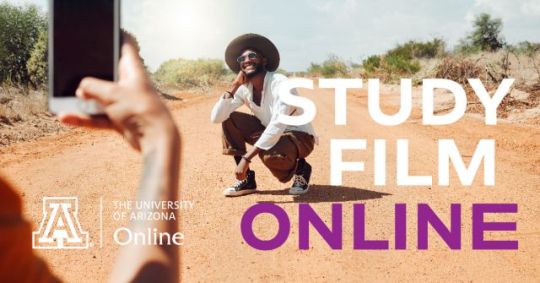
Are you a motivated creative looking to join the influential field of film and television? The Bachelor of Arts in Film & Television is a comprehensive degree that will prepare you for creative, business, and academic careers in the industry. Take courses in film studies, producing and film production. Faculty are top scholars, industry professionals and award-winning filmmakers.

#TV Industry#television#Production#producing#online degree#Film Studies#Film#bachelors degree#asynchronous
0 notes
Link
For work related questions the company org chart can be a starting point, or maybe your team or your lead can give recommend someone.
Everything that’s not strictly work related?
You’d take that to the cafeteria, the breakout room, or the coffee machine if that option existed. Obviously, this restricts you to the people who work in the same location, taking a break at the same time.
That kind of restricted serendipity won’t create magic watercooler innovation. It’s much more likely to create homogenous sub cultures based on… well, location.
0 notes
Text
#Monitoring#Accessibility#Telepsychiatry#Telecardiology#Telehealth#Innovation#Platform#Secure#Interactive#Synchronous#Asynchronous#Patient#Provider
0 notes
Text
Tuition Free
American Accredited (Recognized by DEAC)
Flexible
Academic Programs Available include:
Certificate programs
Associate's Degrees
Bache;or's Degrees
Master's Degrees
Courses may have exams that art proctored. The cost for course assessment may be around $120-$300 USD.
#university#of#the#people#uop#uopeople#edu#low-cost#low#cost#master's degree#bachelor's degree#associate's degree#certificate#asynchronous
1 note
·
View note
Text
how-engineering-communicates/how-github-engineering-communicates.md at main · github/how-engineering-communicates · GitHub
GitHub guidelines and How To remain asynchronous.
0 notes
Text

obsessed with this fucking thang
#side order#side order spoilers#dusty.txt#it has my gender. i will not elaborate#splatoon#asynchronous rondo
5K notes
·
View notes